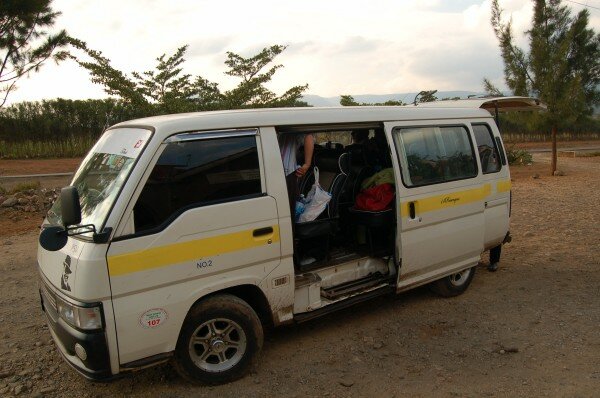
CC image courtesy of teachandlearn on Flickr.
New regulations set to come into place on July 1 mean Kenyan public service vehicles (PSVs) must operate a cashless fare system, with operators subject to fines, loss of licences or imprisonment if they fail to comply. Though in some respects the policy is admirable, the lack of information regarding the new regulations and the lack of a universal payments system threaten commuter chaos.
There are certainly benefits to the cashless PSV policy, implemented by Kenya’s National Transport and Safety Authority (NTSA). It will tackle corruption and tax evasion in the public transport sector, and allow it to be better regulated. It may even lead to increased revenues for the operators themselves, and, if successfully implemented, boost Kenyan confidence in electronic transactions, potentially boosting e-commerce and online banking in the country.
Yet it is a successful implementation that at present looks in doubt. Part of the problem is the sheer amount of potential payment platforms launched in the buildup to the cashless deadline.
Only last week, Kenya Bus Service (KBS) launched its Abiria card electronic payment system in conjunction with Kenya Commercial Bank (KCB), while the Matatu Owners Association (MOA) has partnered with Fibre Space Limited to launch My1963. These are only the two ,most recent additions to an industry that also includes PesaPrint, Visa, MasterCard, Safaricom and Google’s “tap and go” Beba Pay, among others.
Competition is good, but in this case it threatens to be brutally confusing for commuters. No universal payments system has been implemented, and the NTSA is yet to clarify what will happen when a commuter with, say, a Beba card, tries to pay a fare on a PSV that only has the My1963 platform. Will the commuter be allowed on the bus or have to wait for one with the right platform? Surely PSVs are not expected to implement every payment system? Surely commuters are not expected to purchase every card?
There are other areas of confusion the NTSA needs to clarify. Can each operator choose their own payments system? Does it only apply within Nairobi, or are long distance transport options also affected? Can commuters obtain refunds in the event, say, their PSV breaks down mid-journey? Is there ever a circumstance where a PSV may take cash? Won’t operators need cash for emergencies, such as a breakdown or refunding a transferring passenger? Won’t customers be hit with transaction charges they would not incur if paying in cash? What if they run out of credit on their cards mis-journey? What about privacy and security concerns?
These are all questions the NTSA needs to answer as soon as possible to prevent Kenya’s cashless PSV policy becoming mired in confusion and chaos from the moment it comes into place on July 1.

















